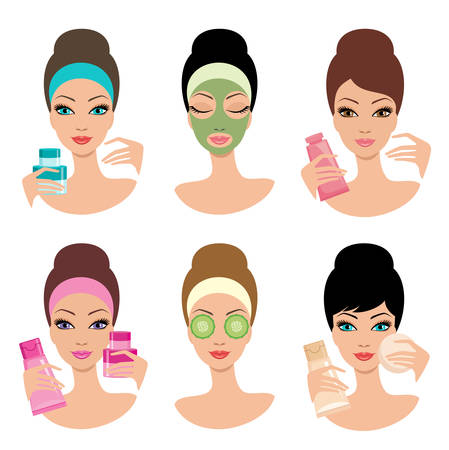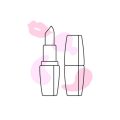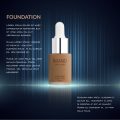Understanding Sensitive Skin in the British Climate
Living in Great Britain means navigating a climate that’s as changeable as it is charming. From drizzly days in Manchester to chilly winds on the Scottish coast, the UK’s weather can play havoc with sensitive skin—especially around the delicate eye area. Sensitivity may be triggered or worsened by daily exposure to damp air, sudden temperature drops, and even hard tap water found in many regions. Understanding these local factors is essential when choosing the right eye creams and serums for your skincare routine.
How the UK Climate Impacts Sensitive Skin
| Environmental Factor | Impact on Sensitive Skin |
|---|---|
| Frequent Rain & High Humidity | Can cause skin barrier disruption and increased sensitivity |
| Cold Winds & Temperature Fluctuations | May lead to dryness, redness, and irritation around the eyes |
| Hard Water (High Mineral Content) | Might strip natural oils, making skin feel tight and more reactive |
What to Look Out For in Eye Care Products
- Fragrance-Free Formulas: Scented products often contain allergens which can irritate sensitive skin, especially in variable climates.
- Hydrating Ingredients: Look for hyaluronic acid or glycerin to counteract moisture loss from wind and indoor heating.
- Mild Preservatives: Choose options that are free from harsh chemicals and unnecessary additives.
A Little Local Tip
If you live in an area with particularly hard water, consider rinsing your face with filtered or boiled (and cooled) water before applying eye care products. This small step helps protect your skin’s natural balance and boosts the benefits of your chosen creams and serums.
Essential Ingredients to Look For (and Avoid)
When it comes to sensitive skin, the British approach is all about gentle care and mindful ingredient choices. The unpredictable UK weather—blustery winds, chilly rains, and sudden sun—means our delicate eye area needs extra protection. Here’s a fresh look at what ingredients to seek out in your eye creams and serums, and which ones to avoid for calm, happy skin.
Hero Ingredients Loved in the UK
| Ingredient | Why It’s Great for Sensitive Skin |
|---|---|
| Cucumber Extract | Soothes puffiness and calms irritation; a classic British favourite for its cooling effect. |
| Aloe Vera | Renowned for its natural calming properties, perfect for reducing redness after a brisk walk along the Thames. |
| Hyaluronic Acid | Lightweight yet deeply hydrating—keeps the under-eye area plump without heaviness or stickiness. |
| Chamomile | Traditionally used in the UK as a calming tea; in skincare, it gently reduces inflammation and soothes stressed skin. |
| Squalane | Mimics the skin’s own oils, providing moisture without clogging pores—a natural, non-toxic touch beloved by many Brits. |
Ingredients Best Avoided
| Ingredient | Reason to Avoid |
|---|---|
| Fragrance/Parfum | Synthetic scents are a common culprit behind irritation—especially troublesome during allergy season in the UK. |
| Alcohol Denat. | This drying alcohol can strip moisture and aggravate sensitive skin, particularly when facing harsh British winds. |
| Essential Oils (in high concentrations) | While lovely in aromatherapy, potent essential oils like peppermint or citrus can trigger sensitivity around the eyes. |
| Sulphates & Parabens | Widely avoided by those seeking clean beauty; these can be harsh and may disrupt the delicate balance of sensitive skin. |
Naturally Nurturing Choices
If you’re shopping for eye care across Britain—from high street chemists to boutique apothecaries—opt for products clearly labelled as hypoallergenic or designed for sensitive skin. Seek out brands that champion cruelty-free practices and eco-friendly packaging, echoing the UK’s growing passion for sustainability. By choosing time-honoured botanicals and steering clear of harsh additives, you’ll be well on your way to bright-eyed radiance that feels as fresh as a spring morning in Cornwall.

3. Lightweight Textures vs. Rich Formulations
When it comes to choosing eye creams and serums for sensitive skin in Great Britain, the texture of your product plays a key role in both comfort and effectiveness. British skincare brands often offer a lovely variety of light, fast-absorbing formulas as well as richer, more nourishing creams to cater to changing weather and individual preferences. The ever-changing UK climate—from brisk winds in Scotland to the milder southern coast—means your skin’s needs may shift with the seasons or even day to day.
Choosing Between Lightweight and Rich Textures
If you have sensitive skin, lighter textures such as gels or fluid serums are often less likely to clog pores or cause irritation. These are ideal for daytime use, under makeup, or during warmer months when humidity is higher and your skin doesn’t crave as much extra moisture. On the other hand, richer formulations—think creamy balms or buttery eye creams—are a treat during chilly British winters or for those with very dry, delicate under-eyes.
Texture Comparison Table
| Texture Type | Typical British Example | Best For | Season |
|---|---|---|---|
| Lightweight Gel/Serum | Cucumber-infused serum from Boots Botanics | Sensitive, oily or combination skin; layering with makeup | Spring/Summer |
| Rich Cream/Balm | Calming oat cream from Neal’s Yard Remedies | Dry, mature or very sensitive skin; night care | Autumn/Winter |
Top Tip:
If your skin feels tight after cleansing or you spend time outdoors in brisk British weather, opt for a richer formula in the evening to help lock in moisture. For city dwellers or anyone prone to puffiness, lightweight options with British-grown botanicals like chamomile can soothe without weighing down delicate skin.
4. Fragrance-Free and Hypoallergenic Choices
When it comes to choosing eye creams and serums for sensitive skin in Great Britain, fragrance-free and hypoallergenic formulations are absolute essentials. British weather can swing from damp city smog to crisp rural breezes, both of which may aggravate delicate skin around the eyes. Fragrance, while lovely in a scented candle, often causes irritation or allergic reactions—especially in the uniquely changeable UK climate.
Why Go Fragrance-Free?
Many fragrances contain alcohols and chemical compounds that can trigger redness, itching, or dryness—problems that are all too familiar if you commute on the Tube or spend weekends in the countryside. Opting for fragrance-free products minimises your exposure to these potential irritants, letting your skin stay calm and content no matter where you are in Britain.
What Does Hypoallergenic Mean?
Hypoallergenic means that a product is formulated to reduce the likelihood of allergic reactions. While not a guarantee (as everyones sensitivities differ), these products are designed with extra care—often skipping harsh preservatives, dyes, and common allergens. For Brits who experience hay fever or pollution-driven flare-ups, hypoallergenic eye treatments offer a gentler alternative.
Quick Comparison: Conventional vs. Sensitive-Skin Eye Products
| Conventional Eye Cream | Fragrance-Free & Hypoallergenic Eye Cream | |
|---|---|---|
| Main Ingredients | Often includes perfumes, alcohols, dyes | No added fragrance, minimal irritants |
| Suitability | Normal/tolerant skin types | Sensitive & allergy-prone skin |
| Common Reactions | Redness, stinging, breakouts | Soothed, less reactive skin |
Top Tip for UK Shoppers:
Look out for labels stating “fragrance-free”, “for sensitive skin”, or “hypoallergenic”. Many trusted British brands such as Simple or E45 specialise in gentle formulations ideal for our diverse environments. Always check ingredient lists and do a patch test before full use to ensure your chosen product truly suits your unique skin needs.
5. How to Patch Test Like a Pro
If you have sensitive skin, especially around the delicate eye area, patch testing is your first line of defence before fully committing to any new eye cream or serum. Here’s how British dermatologists recommend you safely trial new products to avoid unwanted reactions:
Why Patch Testing Matters
The skin around your eyes is thinner and more reactive than elsewhere on your face. Even products labelled as “hypoallergenic” or “suitable for sensitive skin” can sometimes cause irritation. A proper patch test helps ensure you don’t experience redness, stinging, or puffiness after full application.
Dermatologist-Approved Patch Test Steps
| Step | What to Do |
|---|---|
| 1. Choose the Right Area | Select a discreet area such as behind your ear or on your inner forearm, as these mimic the sensitivity of the under-eye region. |
| 2. Cleanse First | Gently cleanse the chosen area with a mild, fragrance-free cleanser and pat dry. |
| 3. Apply a Small Amount | Dab a pea-sized amount of the product onto the test area. |
| 4. Wait and Observe | Leave the product on for 24 hours without washing it off. Monitor for any signs of redness, itching, or swelling. |
| 5. Reapply if Needed | If there’s no reaction, reapply again for another 24 hours to double-check for delayed sensitivity. |
What If You Notice a Reaction?
If you see any signs of irritation (redness, itching, bumps), wash off immediately with cool water and avoid using the product near your eyes. For persistent irritation, consult your local pharmacist or GP—your peace of mind matters!
A Fresh British Tip:
Always patch test each new product—even those from trusted UK brands or ones that claim to be ‘natural’. Our British weather can make skin more reactive during winter or hay fever season, so take extra care during these times.
6. Trusted British Brands & Local Favourites
When it comes to choosing eye creams and serums for sensitive skin in Great Britain, supporting local brands not only nurtures the community but also ensures you’re getting products formulated with the British climate and sensitivities in mind. Many UK-based skincare brands are celebrated for their commitment to natural, gentle ingredients and cruelty-free ethos. Here’s a look at some reputable names that frequently top recommendations from British skincare experts:
| Brand | Key Features | Why Locals Love It |
|---|---|---|
| Pai Skincare | Organic, fragrance-free, formulated specifically for sensitive skin | Developed in London, Pai is praised for its transparency and soothing botanicals, ideal for delicate under-eye areas. |
| REN Clean Skincare | Naturally-derived ingredients, no harsh chemicals, vegan-friendly | Popular across the UK for clean formulas that respect both skin and environment; REN’s eye gels are especially gentle. |
| Green People | Certified organic, cruelty-free, suitable for eczema-prone skin | A favourite among those with highly reactive skin, Green People’s serums use calming plant extracts native to Britain. |
| Balmonds | Minimal ingredients, free from parabens and synthetic fragrances | This Brighton-based brand is often recommended by dermatologists for ultra-sensitive or allergy-prone eyes. |
Expert Tips: What Makes a Brand Trustworthy?
- Transparent Ingredient Lists: Look for brands that clearly state every ingredient and avoid unnecessary fillers or irritants.
- Cruelty-Free Credentials: Many British shoppers value ethical production—seek out certified cruelty-free logos.
- Local Recommendations: Pay attention to what UK dermatologists and beauty therapists recommend for your specific region and skin type.
Where to Shop Local Favourites?
You’ll find many of these trusted British brands at high-street chemists like Boots or Holland & Barrett, as well as online boutiques such as Cult Beauty or Lookfantastic. Choosing homegrown products supports small businesses while keeping your routine beautifully simple and effective—just the way sensitive British skin likes it!


